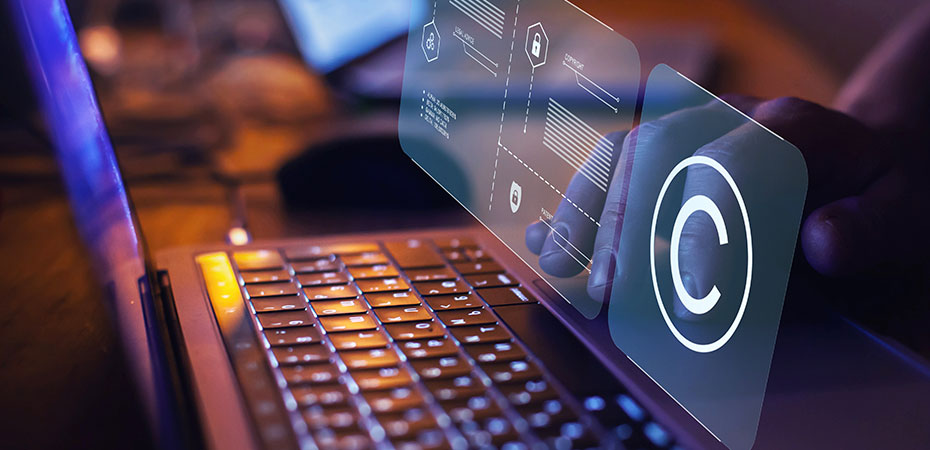In the latest instalment of our copyright article series, Matt Hervey, head of Artificial Intelligence Law and a partner in our Intellectual Property team gives his top 10 tips for copyright and software.
1. Computer programs are copyright works
Computer programs are considered original works and are therefore copyright works. Copyright protection for computer software was harmonised across the EU with the introduction of the copyright (computer programs) regulations in 1992 and the amendments made to UK law are still in force despite Brexit. In the UK, computer programs fall within “literary works” and this includes “preparatory design material” for a computer program.
2. Sort out ownership of the copyright in writing
A lot of people may work on a computer program and, without an agreement, you may end up with a mess of joint ownership, implied licences or worse. You can avoid this with a clear agreement – and make sure it is in writing: that makes the existence of the agreement and its terms easier to prove and an assignment of copyright must be in writing. This will make timing enforcement of your copyright easier and will help avoid nasty issues when fundraising or selling your business or company.
3. Check open-source licence terms
It’s hard and inefficient to write software from scratch, but be careful when using open-source code (and, indeed, any code written by other people). Check which licence terms are acceptable to your business. Some licences purport to interfere with your rights in the software you write and include specific requirements, such as acknowledgement of your use of the open-source code.
4. Be wary of AI-generated code
AI can now generate code (e.g. Copilot, Codex and even ChatGPT). There are open questions about whether code generated by AI attracts copyright, who would own it and whether it may infringe third-party copyrights and licensing terms. This is a complex area, but one in which we have unique expertise. Please get in touch with a member of our Artificial Intelligence team for more information.
5. Machine learning projects need new approaches to IP
The key assets in machine learning projects include training data, hyperparameters, iterations of the trained model and outputs of the model. Copyright and IP were not designed with such assets in mind and care is needed to identify the assets of real value and to protect these however possible through IP, contractual measures, secrecy and other practical safeguards.
6. There is no need to register copyright in the UK
Copyright arises automatically in the UK and your copyright will be enforceable in most countries under international treaties. You might consider registration in the United States: it’s a major market and registration has an impact on enforcing your rights.
7. Copyright lasts a long time and includes lots of exclusive rights
Copyright lasts far longer than the probable lifetime of any software (it normally expires 70 years from the death of the author). It gives the owner the exclusive rights to make permanent or temporary reproductions, and translations (including into other programming languages) and to distribute the software to the public. Of course, copyright itself does not prevent other people from copying your software – you may need to enforce it.
8. Other people can copy what your software does …
You can enforce your copyright against someone copying your code, not copying what your software does. Copyright protection only applies to “expression” not ideas and principles. Under UK and EU law, if someone has lawful access to your software (e.g. someone you have licensed to use it) they are entitled to study and test the way it functions to figure out (and copy) the ideas and principles underlying the software. In fact, any contractual provision to the contrary is null and void.
9. … so consider patent protection
Unlike copyright, patents grant you a 20-year monopoly over what your software does: you can stop other people doing the same thing and it does not matter whether they copied you or came up with the same idea independently. Getting patents for software is not straightforward and needs specialist advice on what is possible. You may also want to check if other people have patents covering what you want to do. Our Patents team can advise you on any challenges you face in a number of jurisdictions.
10. … and trade secrets
Where patent protection is not possible or desirable, keeping the code and workings of your software secret may be the best option. Restrict access to source code (and AI-related assets such as training data, hyperparameters, models and outputs) with password protection, firewalls, access logs, etc. Use APIs to restrict third-party access to source or compiled code and consider restricting the throughput of access to your API (the performance of AI models can be partially reverse-engineered quickly given unrestricted access to inputs and outputs).
Put in place training, policies and contractual terms with employees, contractors and collaborators for the protection, use and potential disclosure of trade secrets. Bake this into you IP strategy and procedures to benefit from the enforcement options for trade secrets and confidential information. Having good procedures helps to protect both your own secrets and third-party secrets entrusted to you … and to stop employees and contractors from bringing unwanted third-party secrets into your business.
Keep an eye on regulatory developments, such as for high-risk AI that may require disclosure of algorithms and data. Our trade secrets lawyers can help with your strategy, procedures, training, employment terms and agreements. In the event of a breach, our Cyber Security team can help contain the damage.
Gowling WLG is a multinational law firm formed by the combination of Canada-based Gowlings and UK-based Wragge Lawrence Graham & Co in February 2016, in the first multinational law firm combination co-led by a Canadian firm.
Please visit the firm link to site





